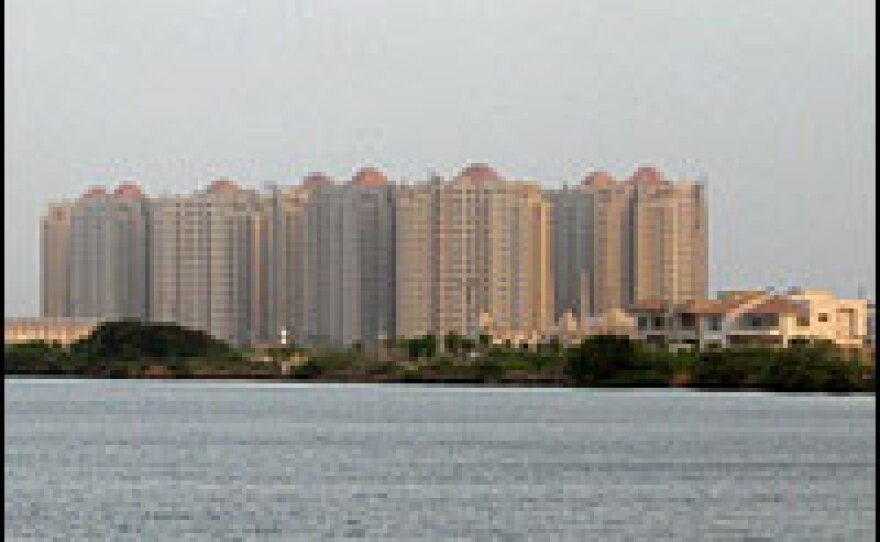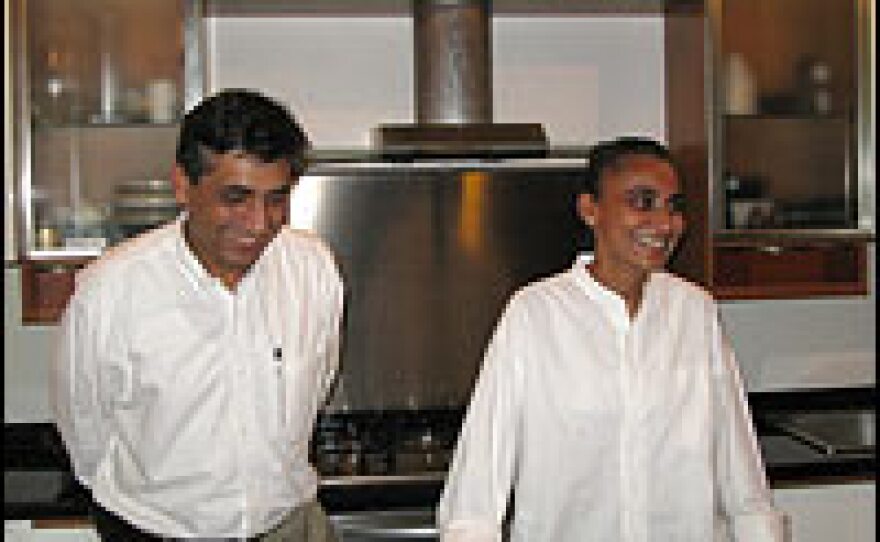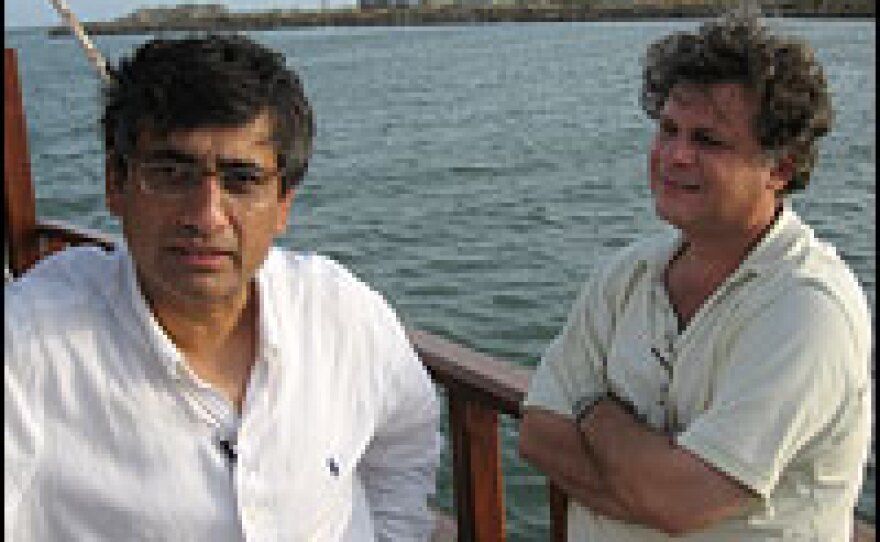


The population of Karachi is estimated at anywhere from 12 million to 18 million — and counting. The city is full of poverty and violence, but despite all its problems, Pakistan's chief port and financial center is attracting a lot of investment, much of it from the oil-rich Persian Gulf.
A Dubai-based company called Emaar has reclaimed more than 100 acres along Karachi's Arabian Sea coast to make space for 45 residential and commercial towers.
Steve McCartt, a native Texan who works for Emaar, shows off a model one-bedroom apartment inside the company's sales building.
California in Karachi
"We've learned that the market in this part of the world absolutely loves California," he says. "Where are you in the world? You don't know necessarily. Is this Karachi-specific? No, not at all."
Emaar's research shows that this is what affluent Pakistanis want. And whatever its problems, this city has plenty of affluent home buyers, ranging from contractors to stockbrokers. Plenty of other people, from soldiers to politicians to various kinds of traders, have sources of income they never declare.
Pakistan's military provided Emaar only with beachfront. The company is reclaiming land, pouring rock and sand into the ocean to create all these acres. The company seized its opportunity as part of a $3 billion investment in Pakistan.
Skeptics might ask why the company is doing business in a place that lacks reliable electricity and clean drinking water and suffers terrible violence.
"Well, you've got to start somewhere," McCartt says. "You wish you had a power grid that was constant, you wish that you didn't drink bottled water, but the more you build these markets into an international market, the more those things will go away because they have the resources to bring in the infrastructure that works."
The Military's Role
The military owns much of the best real estate in Karachi. Retiring military officers get pieces of property, which they can use to build a house, or to sell instantly at a huge profit and become mini-real estate tycoons.
In fact, Emaar is building in a part of the city that's called Defense. It's a peninsula that keeps getting longer and longer as more land is added.
Tariq Alexander Qaiser, a successful architect, and Adnan Asdar, a friend of Qaiser's who is a contractor involved with a number of Karachi's signature buildings, showed a reporter some of the waterfront developments perhaps the best way to see them — by boat.
The developments are big — and impressive. They include upscale apartments, an all-night golf course with stadium lights, and a desalination plant to turn seawater into drinking water for this growing city.
More-Sensitive Development
Massive new condo towers are already built, and there's a lot of vacant land where huge developments may come. But Qaiser didn't always like what he saw.
"Development is good, but it has to be done sensitively," he says.
The men said they'd like to improve the quality of life in their city.
After returning ashore, Asdar leads the way to his car and to dinner with his family in a cool, elegant house in Karachi. Outside the large living room windows, the yard features small reflecting pools.
Asdar is married to Mahboob Khan, another successful architect. Just before dinner is served, they sit together on the couch to talk. Khan has just finished a difficult day dealing with the kind of hotels and shopping malls that keep her firm afloat, she says, but they're not that close to her heart.
A New Bottom Line
"I hope none of my clients will ever get to hear this, but unfortunately the bottom line is the money — how much they can earn and what will sell, and it's to the last cent that they count their money," she says. "I think this capitalistic fever generates out of [the United States]. That's where it started, and we've all become part of that global hunger for money."
Suddenly, the power goes out.
Khan jokes for the children to get the generator out — only the family doesn't have one. What she means is to bring flashlights and candles.
"My wife ... doesn't want a generator in this house because we feel that if the rest of the city is suffering we should learn how to be able to [cope]," Asdar says.
Mehboob Khan says she and her husband are ready for a change in their goals.
"I love my work, I love my family, I love my husband, I love my country, I love my city," she says. "But right now I wanted to change directions for the next 20 years of my life, and hopefully God will give me the next 20 years to do it."
What they want to do is reorient their architecture and construction firms. Over the coming years they hope to spend more time designing and building low-income housing. They want to build houses cheap enough for almost anybody in Karachi to afford, but pleasant enough that people will want to live there.
Copyright 2022 NPR. To see more, visit https://www.npr.org. 9(MDAzMjM2NDYzMDEyMzc1Njk5NjAxNzY3OQ001))







